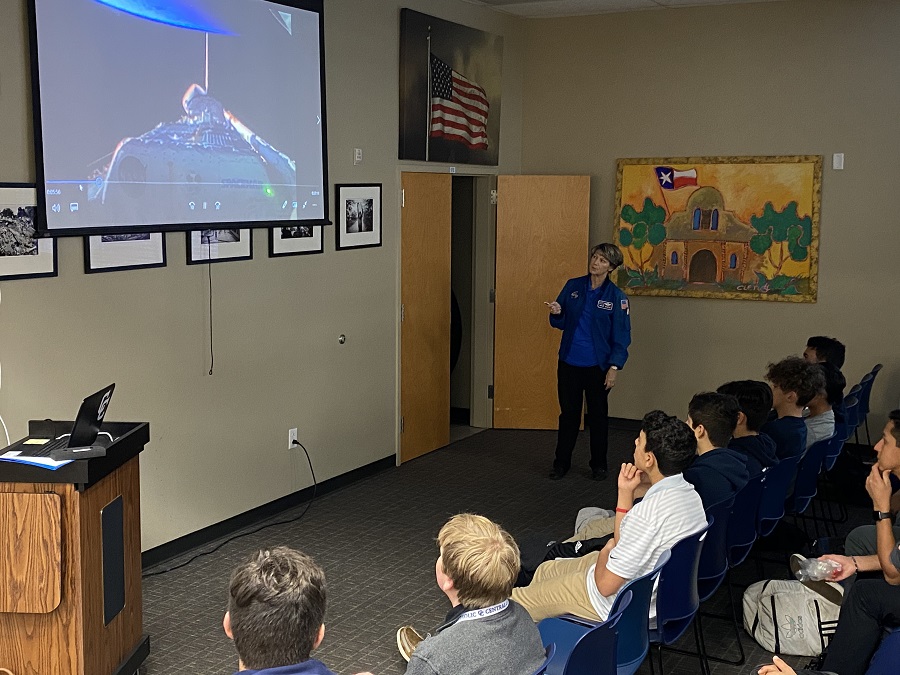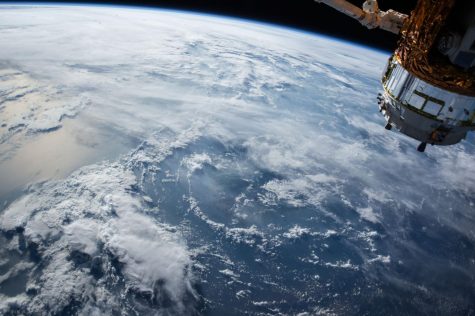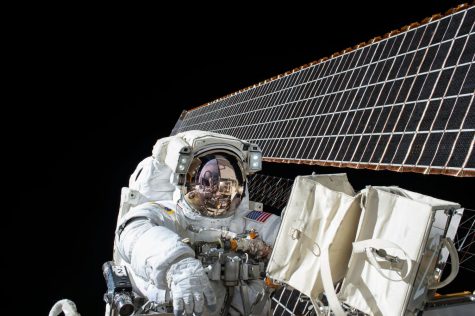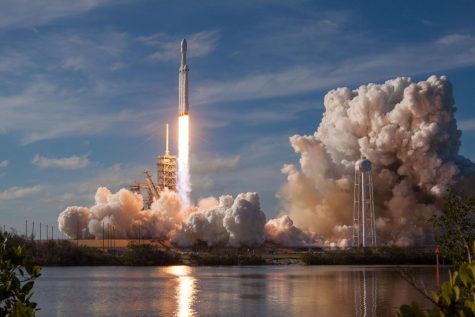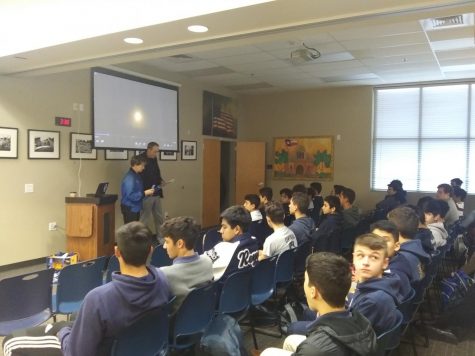Out of this world guest speaks at Central
February 21, 2020
A rather gloomy-skied Thursday afternoon did not halt the arrival of a special guest speaker at Central Catholic’s Elizondo Library conference room. Commander Eileen Collins, who was the first female shuttle commander for a NASA space mission, stopped by to address some students on “out of this world” information about space, and her career as a successful pilot and space shuttle commander.
Commander Collins, formerly a pilot on Discovery STS-63 in 1995, Atlantis STS-84 in 1997, and Commander on both STS-114 and Columbia STS-93, describes her success in the galaxy as “doing her job.” “The most important thing was being focused on the job. In our case, what is the particular space shuttle that we are flying? All the missions were a little different. For the commander, you are responsible for the success and the safety of the mission.”
When asked about what it was like to tour a place where so few people have gone, she commented on how she loved seeing the earth from another point of view. “As a pilot, I was used to looking out the window and seeing the black horizon and my first mission in space, you look out and you see the curved earth. The earth really is round, but when you go into orbit around here from a pilot’s point of view, it is a completely different situation.”
Collins describes very briefly how flying a shuttle, and flying an airplane as a pilot are totally different. “There is no air up there. As a pilot, you are used to flying with wings through the air, and now you are up in space and instead of using control services, you are using jet engines to maneuver.”
Collins goes into a very deep description of what it was like to be the first female commander and says, “When you are the first to do something, people evaluate what you did as to how future women do. I felt as if I had to succeed, if there were to be future women commanders after me.”
And so there was. Pamela Melroy has become on the second female commander in NASA History, and Collins described what her relationship with Melroy is like, and what they both currently do that involves their love for space. “Both of us are from upstate New York, which is a coincidence, but we are friends now and we are both retired, but yet we both work with different jobs in the space program. Pam and I were test pilots and we both graduated from the Air Force Test Pilot School at different times.”
Collins also talks exclusively about her insights on the future of space missions to come. “I put the human space flight in three categories: sub-orbital, orbital, and deep space, and all three of those areas are being developed for the future. Sub-orbital being mostly tourism, where you just go up and come down, orbital is still the space station, which will continue on until 2024, maybe 2028, and the third is deep space, which is the moon and mars. NASA has a plan to send astronauts back to the moon in the year 2024, so they can get ready to go to Mars around 2033.”
For those looking to pursue a career in space science, Collins has some professional advice on qualifications and what the job might call for. “You need a degree in math-science or engineering, in which it would have to be a four year college degree, and three years of related experience of that field in any job. That is really all you need to be eligible, so to be competitive, you need to do more.”
So the next time you look into the night sky, filled with stars and galaxies galore, remember that you could be the next commander on a space mission, looking to explore the world from a whole other point of view. Just as Commander Collins did, with her time at the space station.

